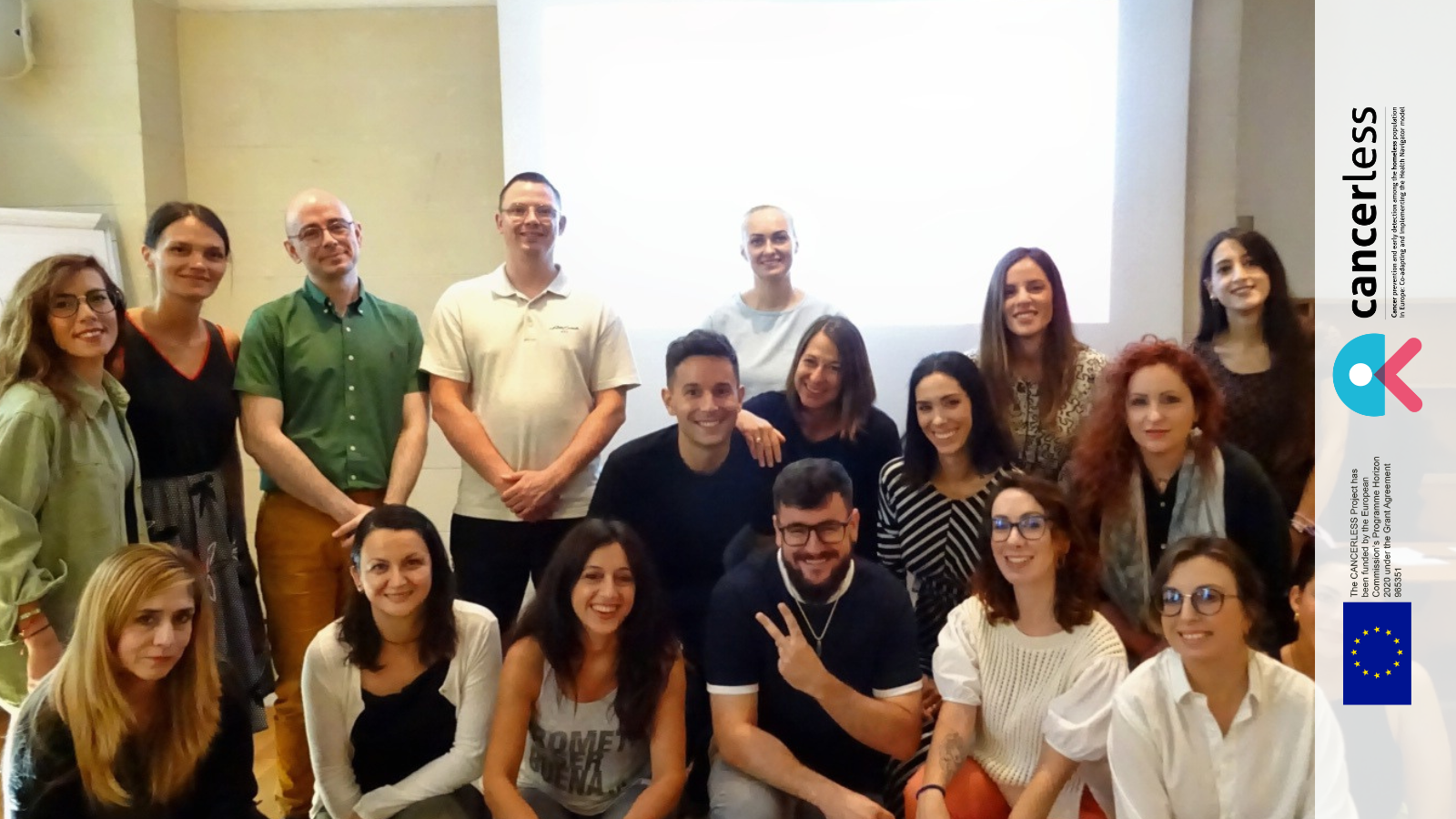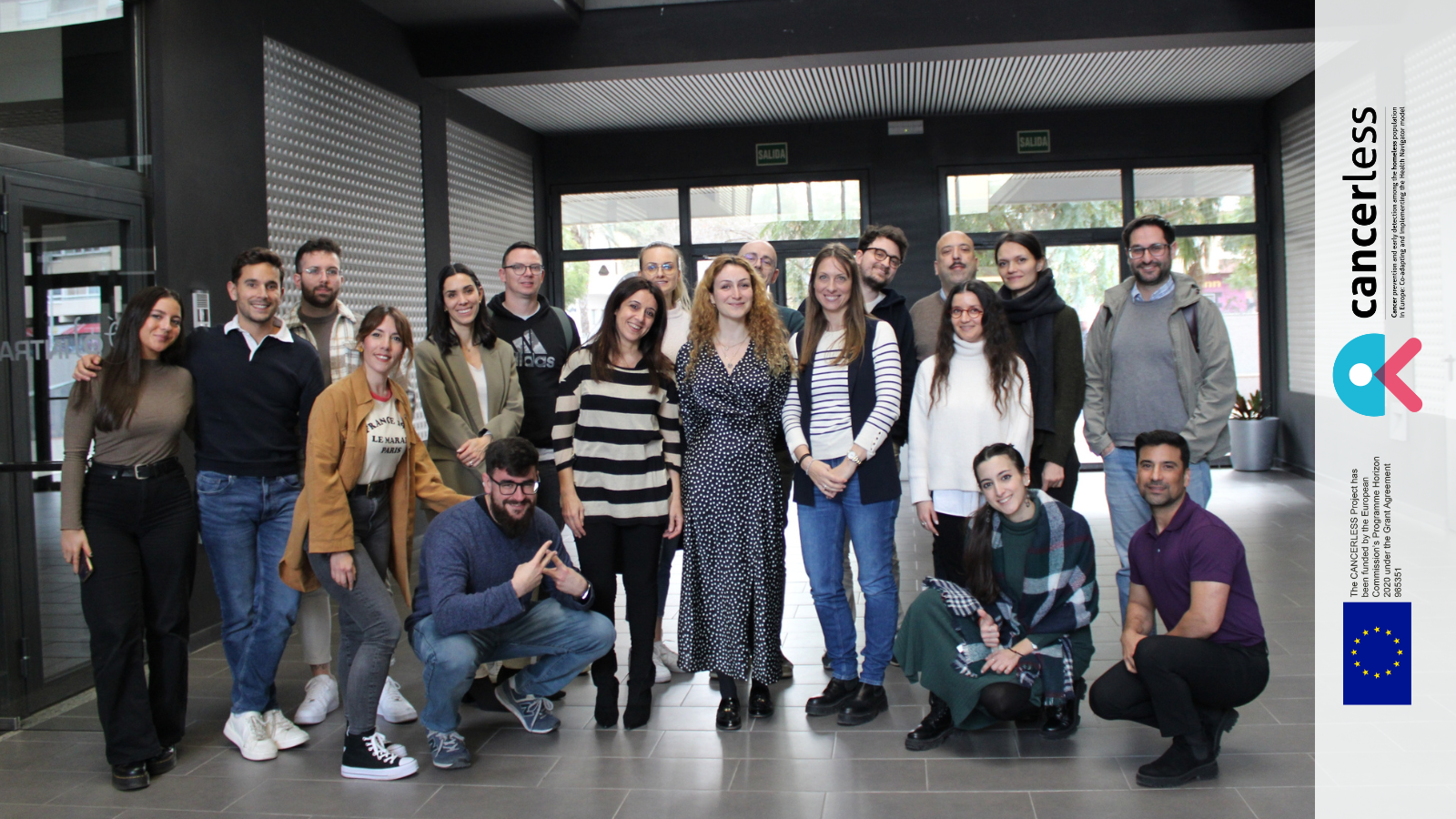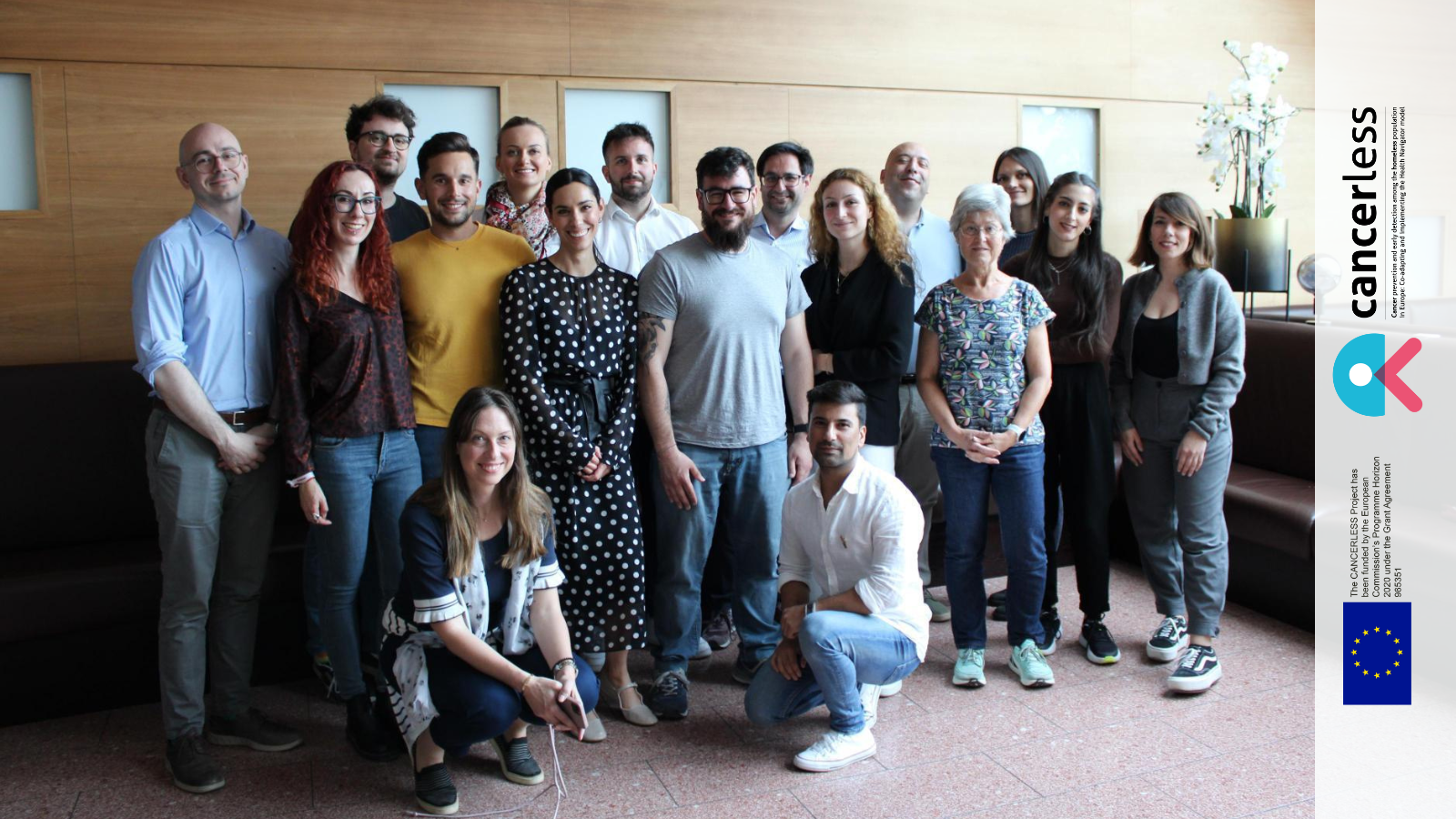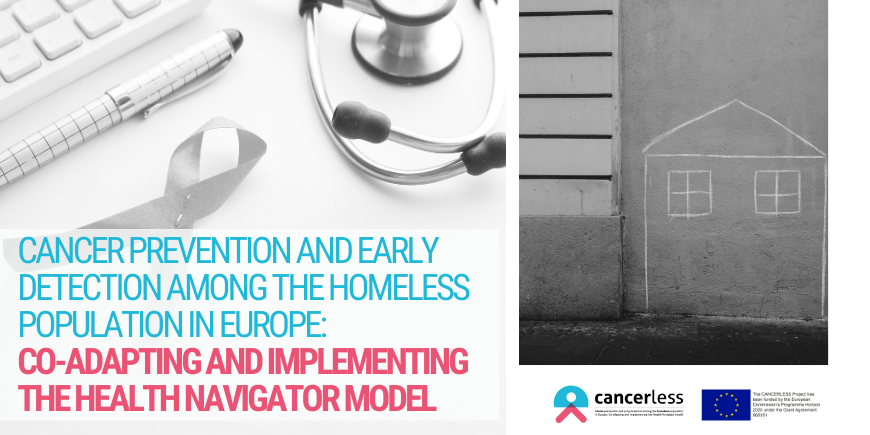The CANCERLESS project is coming to an end, and it is coming to an end during the European Week Against Cancer, which highlights the importance of addressing disparities in cancer care, especially for underserved populations such as People Experiencing Homelessness (PEH).
Cancer-related mortality is twice as high for PEHs compared to the general population, due to the significant challenges they face in accessing general and cancer-specific medical care.
Throughout its 36 months of development, the CANCERLESS project has identified both the most aggravated cancer risk factors and the barriers in the provision of timely and appropriated healthcare for PEH, specifically for cancer prevention. Specially, we have to look at the high exposure to risk factors for ill health, fragmented health systems, lack of accessibility to health services, limited access to cancer prevention information, communication problems between care team members and PEH, scarcity of resources and the lack of practical support available for this population.
The core methodological approach kicked off with co-design groups in each pilot country (Austria, Greece, Spain and UK) were a total of XX including PEH, including some with lived experience of cancer, health and social care team members, and representatives of social society organisations defined the Health Navigation Model embedding elements of navigational and empowering health interventions targeting cancer prevention and facilitating cancer screening.
During the implementation of the Health Naviation Model in its pilot phases in Austria, Spain, UK and Greece, more than 2,000 PEHs were contacted. Finally, 652 participants accepted to participate in the intervention , and 450 successfully completed the first follow-up and 277 actively participated in the second follow-up, demonstrating sustained commitment throughout the Health Navigation Model .
During the whole project, 20 health navigators were enrolled and played a crucial role in providing support and guidance.The interventions in the Health Navigator Model provided cancer prevention education and consultation to 494 participants, counselling to 82 participants, and 169 cancer screenings were conducted.
Moreover, based on the results of a systematic literature review and a delphi study, CANCERLESS has provided 11 standards for enhance integrated cancer care pathways for PEH. These standards are understood as principles for organizing the coordination of the cancer care for this population.
Based on the learning in CANCERLESS findings, a series of specific policy recommendations and protocols have been developed to guide health and social services administrations and policy makers. These recommendations aim to more effectively integrate health and cancer care programmes, with the goal of reducing disparities in cancer care. Implementation of these recommendations is expected to have a significant impact on the health care system, improving inclusiveness, equity, integration, coordination, awareness, accessibility and personal empowerment for people experiencing homelessness.
The Health Navigator Model, demonstrated by the project, is proposed as an effective tool to incorporate into health policy and practice at local, regional and national levels, facilitating the provision of care, especially cancer care, for vulnerable populations.
In a world where healthcare often seems inaccessible to the most underserved population, the CANCERLESS project has been a light in the darkness, demonstrating that hope and change are possible. With its innovative approach and forward-looking policy recommendations and protocols, CANCERLESS has charted a path towards a future where everyone, regardless of their situation, has access to healthcare, specifically to cancer care they need and deserve. As the project draws to a close, it is clear that its impact will live on long after the lights go out in the lab and the corridors of institutions. It is a call to action, an invitation to move forward together in pursuit of a more just and equitable world for all.




